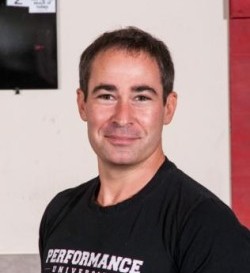As a fitness professional, I often get asked about Microwave Dangers. Questions like, ”Is using the microwave oven bad for my health?” “I’ve heard microwaving changes the molecular structure or water/ food making it less nutritious or unhealthy. Is that true?” “Does the microwave cause cancer?”
Category Featured
On my to-do list today is grading the final exam in my “Introduction to Epidemiology” class. About a quarter of the exam addresses issues in screening for latent (subclinical) disease. In his 1986 book, Medical Care Can Be Dangerous to Your Health: A Guide to the Risks and Benefits, Eugene D. Robin provided this apt description of what screening programs do: Make patients out of normal human beings.
Six months after I started working out, I could see progress: I wasn’t on the verge of death during every workout. I was starting to do weight training, seeing and feeling the results. That’s when I considered augmenting my workouts with dietary supplements.
Sometimes journalists focus their efforts on distinguishing fact from fiction: they carry out well-planned, well-executed, objective investigations that yield illuminating findings about important issues. But when it comes to building and keeping an audience, telling an appealing story is often more important than proceeding properly with skeptical, truth-seeking investigation. The late Don Hewitt, creator and, for more than 35 years, executive producer of the extraordinarily successful CBS Television newsmagazine program “60 Minutes,” frequently suggested that the priority for journalists is summed up by four words: tell me a story.
Who here has trouble losing weight? Why I could not lose the weight baffled me. Well, it’s actually more complex than I thought. First, a lack of self-control is usually the knee-jerk assumption as to why you gain weight. This is based on the belief that weight loss is a simple matter of thermodynamics: one takes in more calories than one “burns”. That is true – but only to a point. I take a combination of psychiatric medications; the resulting weight gain is what the scientific literature calls “antipsychotic induced weight gain” (AIWG) (Lett et al., 2012, P. 242). Knowing mine is AIWG is frustrating: It is why my 900 calorie diet and exercise regimen do not work.
It was a chilly December afternoon. London, 2008. I was late for the tube – so I bundled up, walked swiftly around the corner, through the turnstile, when I heard the train arriving. That meant I had about one minute – let the dash begin. I leaped up several flights of stairs to make it onto the train by a whisker… and then my life changed.
“What medications do you take?”
“What?” She appeared to be sleeping. I guess it took her a moment to realize she was in her hospital bed. I was waiting for her eyes to open. I don’t usually talk to the hospitalized patients directly, but in this case, I had to make an exception.
“I take lisinopril and metformin. Who are you?”
“I’m your pharmacist. I’m dosing the blood thinner your doctor prescribed for you… to help make sure you don’t get a stroke? Your lab work came back all wacky and I’m just trying to figure out why. Do you happen to be taking any dietary supplements?”
“Turmeric” she said. “It helps with my arthritis.”





